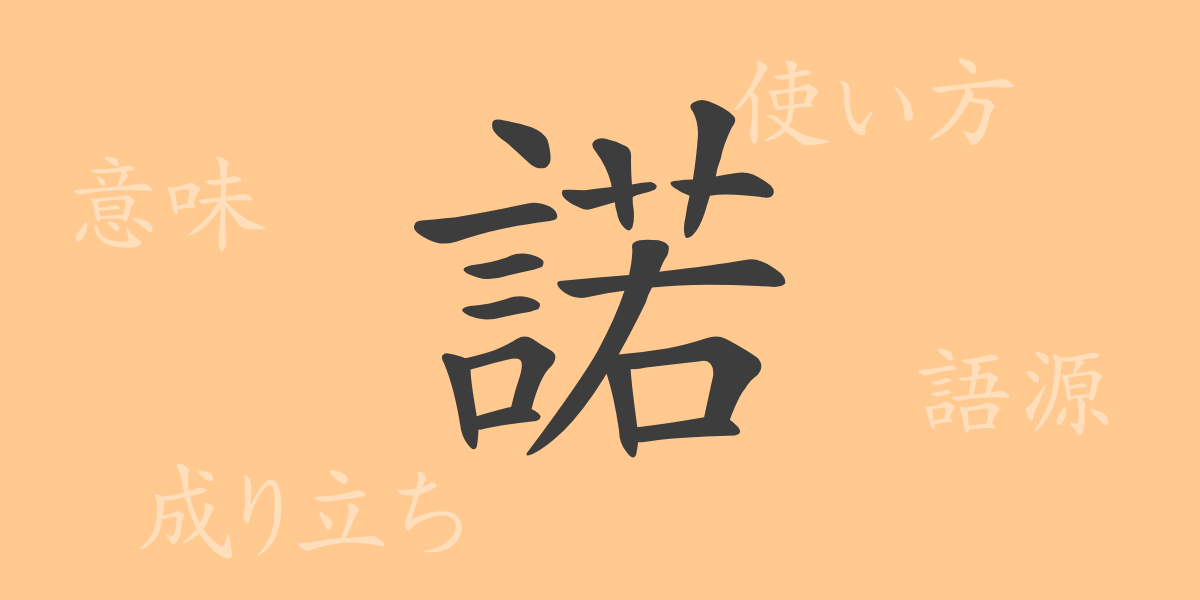Among the many kanji in the Japanese language, each with its unique history and meanings, “諾” (だく) (daku) holds a special place. Used in contexts ranging from everyday conversation to formal business agreements, “諾” symbolizes agreement and acceptance. This article delves into the origins, meanings, and usages of “諾,” exploring how this kanji enriches communication in Japanese culture.
Origins of ‘諾’ (だく) (daku)
The kanji “諾” originated in ancient China, combining “言” (げん) (gen), which means words or speech, with “若” (じゃく) (jaku), which indicates supposition like “if” or “perhaps.” Together, these elements suggest giving one’s word or consenting to a hypothesis. Over time, “諾” evolved to specifically denote giving a verbal promise or agreement, a concept also reflected in classical Chinese texts.
Meaning and Usage of ‘諾’ (だく) (daku)
“諾” primarily means to agree or consent, making it a staple in business where it signifies contractual agreement, and in everyday interactions as a form of affirmative response. It can also appear in literary contexts, symbolizing the internal consent or resolution of a character.
Readings, Stroke Count, and Radical of ‘諾’ (だく) (daku)
Understanding “諾” involves knowing its readings, stroke count, and associated radical:
- Readings: On’yomi (Sino-Japanese reading) is “ダク” (daku); there is no commonly used Kun’yomi (native Japanese reading).
- Stroke Count: “諾” consists of 15 strokes.
- Radical: The radical is “言” (ごんべん) (gonben), related to speech or words.
Phrases, Idioms, and Proverbs Using ‘諾’ (だく) (daku) and Their Meanings
Phrases and idioms involving “諾” reflect its underlying meanings:
- 承諾 (しょうだく) (shoudaku): To consent or agree to someone else’s request or opinion.
- 黙諾 (もくだく) (mokudaku): Silent consent or agreement, without expressing it in words.
- 諾否 (だくひ) (dakuhii): The act of agreeing or disagreeing; essentially saying ‘yes’ or ‘no’.
- 即諾 (そくだく) (sokudaku): Immediate agreement or consent.
- 諾諾 (だくだく) (dakudaku): Readily or easily giving consent, often used to describe someone who agrees too quickly.
Summary on ‘諾’ (だく) (daku)
The kanji “諾” plays a critical role in facilitating smooth communication and building trust between people, symbolizing agreement and promises. This exploration of “諾” not only sheds light on its rich historical context and meaning but also emphasizes its significance in everyday Japanese usage. As a commonly used kanji, “諾” will continue to be an essential part of Japanese language and culture.

























